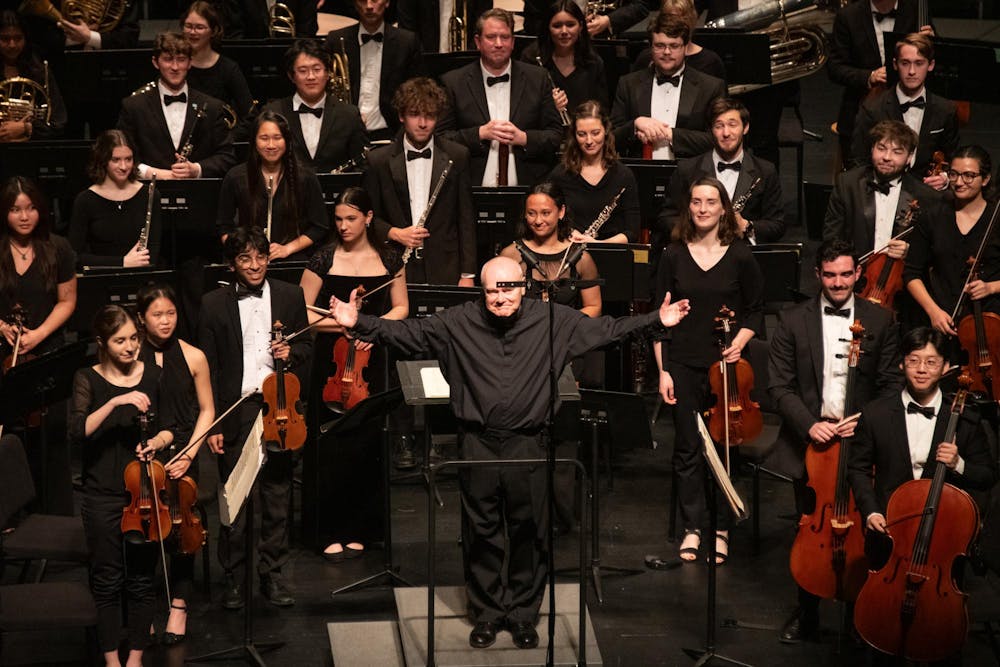On Wednesday, a packed crowd at the UNC Symphony Orchestra concert rumbled in a glorious standing ovation as Professor Tonu Kalam gripped the podium in Memorial Hall for the last time.
Last night was the renowned conductor's final performance before he retires after 36 years of working in the UNC Department of Music and leading the orchestra.
“I've accomplished what I want to accomplish and I sort of feel like I'm retiring when I'm still on top of my game,” Kalam said.
To his colleagues and friends, Kalam will always be known for his quiet, deeply thoughtful, encyclopedia-like mind.
On first meeting him, students might find Kalam’s accomplishments and personality intimidating, but David Kim, principal cellist of the orchestra, said that they soon learn he is kind, understanding and — in the right setting — will crack jokes.
“I'll really miss his demeanor, I'll miss his ability to conduct and his wealth of knowledge,” Matthew Gimbel, a senior and the orchestra's principal bassist, said. “He's really an excellent resource in this genre and in this art form.”
An alumnus of Harvard University, the University of California at Berkeley and the Curtis Institute of Music, Kalam trained under esteemed conductors and composers. He has conducted hundreds of performances and received numerous prizes, including the 2012 American Prize in Orchestral Performance with the UNC symphony.
Gimbel said when Kalam complimented his playing in an audition, it stuck with him and motivated him throughout the year.
Kim describes Kalam as someone with charisma, aura and a highly-developed, particular taste. He said that Kalam’s musicality always tells a story, and that it inspires him to give an “informed performance.”



